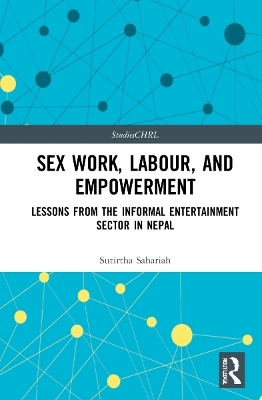
Sex Work, Labour, and Empowerment
Routledge (Verlag)
978-0-367-74249-2 (ISBN)
This book presents an analysis of the concepts of female empowerment and resilience against violence in the informal entertainment and sex industries.
Generally, the key debates on sex work have centred on arguments proposed by the oppressive and empowerment paradigms. This book moves away from such debates to look widely at the micro issues such as the role of income in the lives of sex workers, the significance of peer organisations and networks of women, and how resilience is enacted and empowerment experienced. It also uses positive deviancy theory as a useful strategy to bring about notable changes in terms of empowerment and agency for women working in this sector and also for addressing the wider issues of migration, HIV/AIDS, and violence against women and girls. The focus is on moving beyond a victimisation framework without downplaying the extent of the violence that women in this industry experience. It conceptualises the theories of empowerment and power which have not been tested against women who work in this sector, combined with in-depth interviews with women working in the industry as well as academics, activists, and personnel in the NGO and donor sector. In doing so, it informs the reader of the numerous social, political, and economic factors that structure and sustain the global growth of the industry and analyses the diverse factors that lead many thousands of women and girls around the world to work in this sector.
The work presents an important contribution to the study of citizenship and rights from a non-Western angle and will be of interest to academics, researchers, and policymakers across human rights, sociology, economics, and development studies.
Sutirtha Sahariah is an independent development consultant and researcher focusing on issues of gender, migration, sanitation, human rights, and violence in South Asia. He has previously worked as a freelance journalist and covered stories on human trafficking, gender, and development for The Guardian (UK), the BBC, NewsDeeply, Dutch Public Radio & Television, and NPR.
1. Introduction
2. The Impact of Nepal’s Maoist Conflict on Women
3. Social Norms, Masculinity, and Violence
4. Women & Empowerment in Nepal’s Sex and Informal Entertainment Industry
5. Resilience of Women in Nepal’s Sex and Informal Entertainment Industry
6. Positive Deviance Among Nepal’s Sex and Informal Entertainment Workers
7. Peer Networks & Capacity Building
8. COVID-19 and the Human Rights Movement of Sex Workers in Nepal
9. Conclusion
| Erscheinungsdatum | 29.11.2021 |
|---|---|
| Reihe/Serie | Studies in Citizenship, Human Rights and the Law |
| Zusatzinfo | 6 Tables, black and white; 7 Line drawings, black and white; 7 Illustrations, black and white |
| Verlagsort | London |
| Sprache | englisch |
| Maße | 156 x 234 mm |
| Gewicht | 453 g |
| Themenwelt | Recht / Steuern ► EU / Internationales Recht |
| Recht / Steuern ► Öffentliches Recht ► Völkerrecht | |
| Sozialwissenschaften ► Soziologie ► Gender Studies | |
| Sozialwissenschaften ► Soziologie ► Spezielle Soziologien | |
| ISBN-10 | 0-367-74249-7 / 0367742497 |
| ISBN-13 | 978-0-367-74249-2 / 9780367742492 |
| Zustand | Neuware |
| Informationen gemäß Produktsicherheitsverordnung (GPSR) | |
| Haben Sie eine Frage zum Produkt? |
aus dem Bereich


